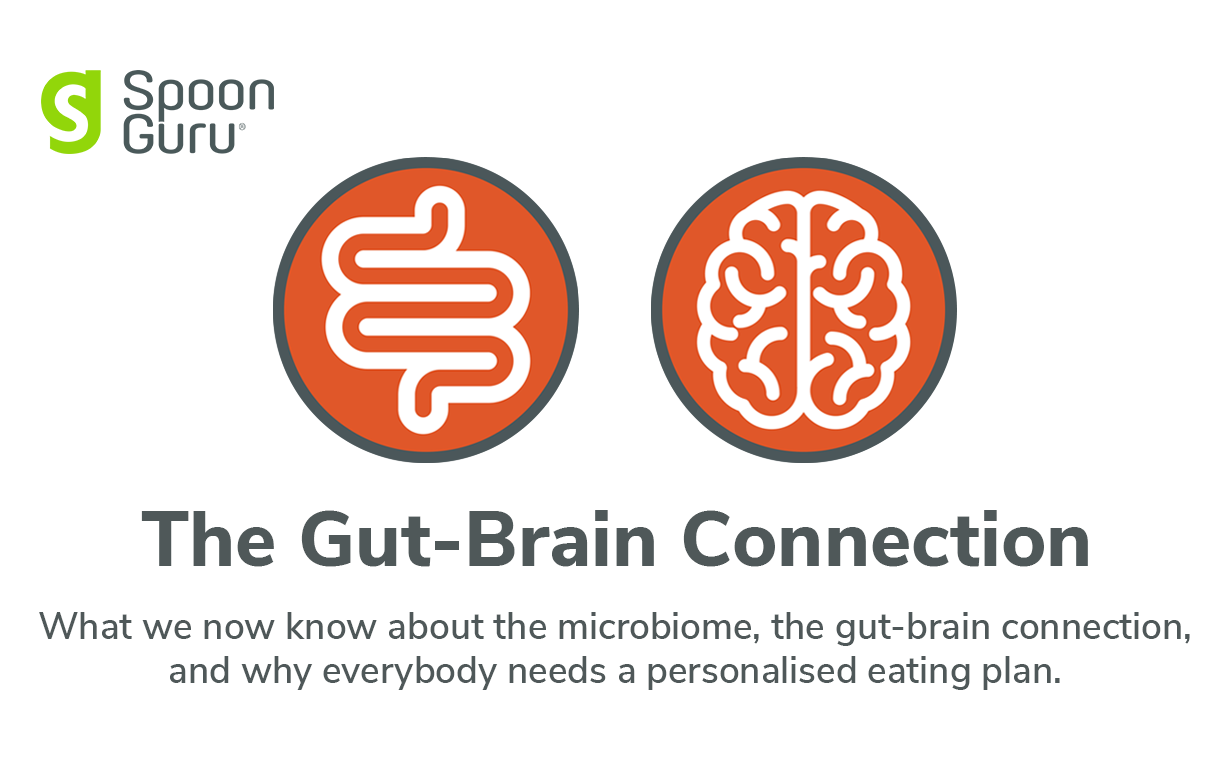What we now know about the microbiome, the gut-brain connection, and why everybody needs a personalised eating plan.
Fibre, whole grains, probiotics and prebiotics… Just when you think you know all there is about good gut health, science works its magic and discovers even more!
To understand good gut health, we first need to understand the basics of what our gut is and how it works. When we talk about our ‘gut’, we’re referring to our intestines, or more specifically our gastrointestinal tract which starts at the mouth and ends at the anus. Within every gut is a community of microbes such as yeast, fungi, and bacteria, and collectively this is known as a microbiome.
A microbiome is a very complex system comprising over 1,000 different types of microbes. In fact, research has shown that there are 10 times the number of microbial cells in the gut than the whole human body, and these can weigh up to 5 pounds. With so many microbes, it’s no wonder that we still have a fair way to go in regards to understanding what each one does and how it works! To further complicate things, every microbiome will be slightly different for each person.
One thing that we do know, is that the microbes in our gut have been found to communicate with our central nervous system as well. It’s almost like we have two brains! The science around the gut-brain connection (known as the gut-brain axis) is becoming more and more understood. One study even found that when test subjects with severe to moderate depression were put on a Mediterranean diet, they showed a 30% improvement in their symptoms.
Recent research has discovered that the microbiome is more crucial in the world of health than previously thought. There have been links found between the gut microbiome and Crohn’s disease, IBS, heart disease, skin conditions and even mental health. Plus, with 70% of our immune system in our gut, it’s definitely worth looking after, especially during times of pandemic.
Basically, we know that there are links between certain microbes and medical conditions, but right now we just don’t know which ones. The Mediterranean diet has recently been championed as being one of the healthiest diets for gut health due to its high portions of whole foods and low portions of foods containing bad fats and sugars. Here’s what it looks like:
 |
Fruits and vegetablesFruit and vegetables contain high amounts of vitamins and fibre, making them great sources of nutrients. Fibre can’t be readily digested by the body, but they can be digested by certain microbes. Fibre acts as a feed to make sure they stay alive. |
 |
Whole grains and legumesWhole grains and legumes also contain fibre which aids healthy digestion. Whole grains also contain non-digestible carbs which are not digested by the small intestine, but by the large intestine. These carbs make their way through the digestive tract to the large intestine, where they can be broken down. |
 |
Lean red meatRed meat is an optional part of the Mediterranean diet, but keep consumption of this down. If you do include it, make sure it isn’t too high in saturated fats or processed. Participants in the study mentioned above consumed red meat a maximum of 3-4 times per week. |
 |
Olive oilIf you were to pick an oil, olive is a good place to start! Other than gut advantages, extra virgin olive oil has been linked to improved cardiovascular health, type 2 diabetes and even mood. The participants who contributed to the Mediterranean diet study mentioned above consumed 3 tablespoons of olive oil per day. |
 |
Fermented FoodsAnother food to add, but not necessarily consumed in the Mediterranean diet is fermented foods, preferably unsweetened. Fermented foods are great as they can contain up to 20 different types of microbes, which is great for keeping a large amount of microbe diversity in the gut. Always check the labels though, a lot of kefir products sold in supermarkets can contain high amounts of sugar which is not good to consume on a regular basis! Even artificial sweeteners can really change the gut microbiome, and not in a good way. |
Due to research, personalised eating plans are becoming more and more specific to the individual, there’s no such thing as a universal ‘healthy’ diet. There are some interesting studies which show that even when the genes of two people are identical, in twins, their microbiomes can be very different. Thus suggesting that individual microbiomes may be affected by diet in many different ways, proving that there are benefits of looking after your gut. A well looked after gut probably means better all round health. Going to a dietitian or nutritionist can result in a plan which is suited to food choices, allergies, health conditions and now so much more, like boosting your mood. However, watch this space, research is finding out so much more about the links between food and individuals, including digestion, the gut and the food we eat. Remember if you do have any diet recommendations or questions, go to a registered nutritionist or dietitian.
